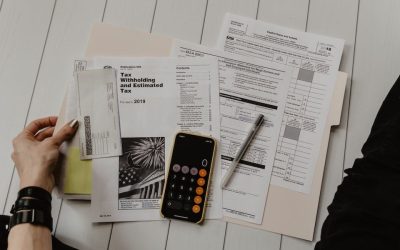
Many UK nationals who are now resident abroad continue to own properties in the UK. For some, it is a way to avoid parting with their UK residence and turn it into a profitable investment while they are not using it. For others, it is simply because UK property remains an attractive asset to have in an investment portfolio.
However, a number of tax increases and rule changes are due to hit UK property investment, starting very soon and continuing to roll out over several years. Those who are not resident in the UK are sheltered from some of the changes, but by no means all. In particular, there are two tax hikes coming up soon that will impact expat investors.
The first of these is a 3% increase in stamp duty when a new UK property is purchased by somebody who already owns a property in the UK. This is due to take effect pretty much imminently – or on the1st of April to be precise. This tax can already be up to 12%, the rate for the highest-value properties worth over £1.5 million, though it should be noted that this top rate is only paid on the portion of the value that exceeds the £1.5 million threshold, and the lower rates are applied to the remainder of the purchase price. On very high value properties, the extra stamp duty paid as a result of the 3% rise across the board could easily equal tens of thousands of pounds.
If you are partway through the purchase process and virtually at the end, it may still be possible to avoid the increase in stamp duty by completing before the change takes effect on 1st April. For the vast majority of investors, however, it is simply too late to do this. Only a few whose purchases are almost complete anyway and who need only bring their completion date forward slightly to bring it before the deadline will still have this option at such a late juncture. An alternative would be to invest through a relative who does not already own a property (cash gifts to relatives are tax-free if you are non-UK domiciled), or through a trust for the benefit of a child or grandchild.
The other key tax increase that expat investors should be aware of affects the Annual Tax on Enveloped Dwellings (ATED). This could affect expats who own non-let UK properties through companies, and is more a widening of scope than an actual increase. Previously only levied on properties worth over £2 million, it will affect properties worth over £500,000 starting from April.
Letting out the property is one way to avoid the charge, though it must be let to somebody who is not connected to the company owner in order for this to work. Note that the relief must be claimed through the annual tax return rather than being automatically applied. Another option is simply to move the property into personal ownership and out of company hands. This will carry charges of its own, though, so it is advisable to seek professional advice to be sure this is the preferable option.
- Homebuilding and Renovating Show Free Tickets - March 19, 2024
- From Fixer-Upper to Dream Home: Investing Returns in Your Property Journey - March 13, 2024
- Leaving on a High Note: Acing Your End of Tenancy Clean - March 13, 2024



